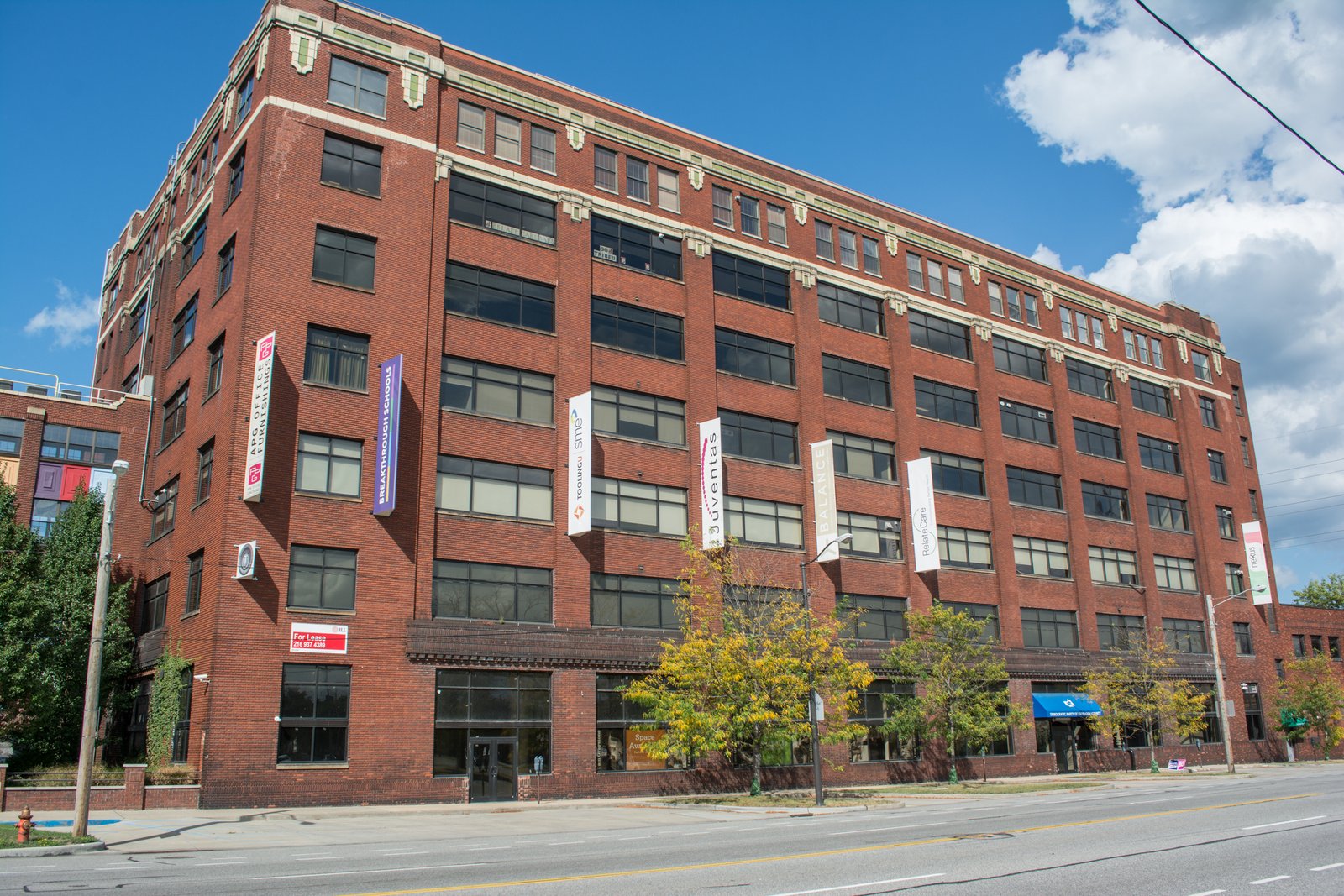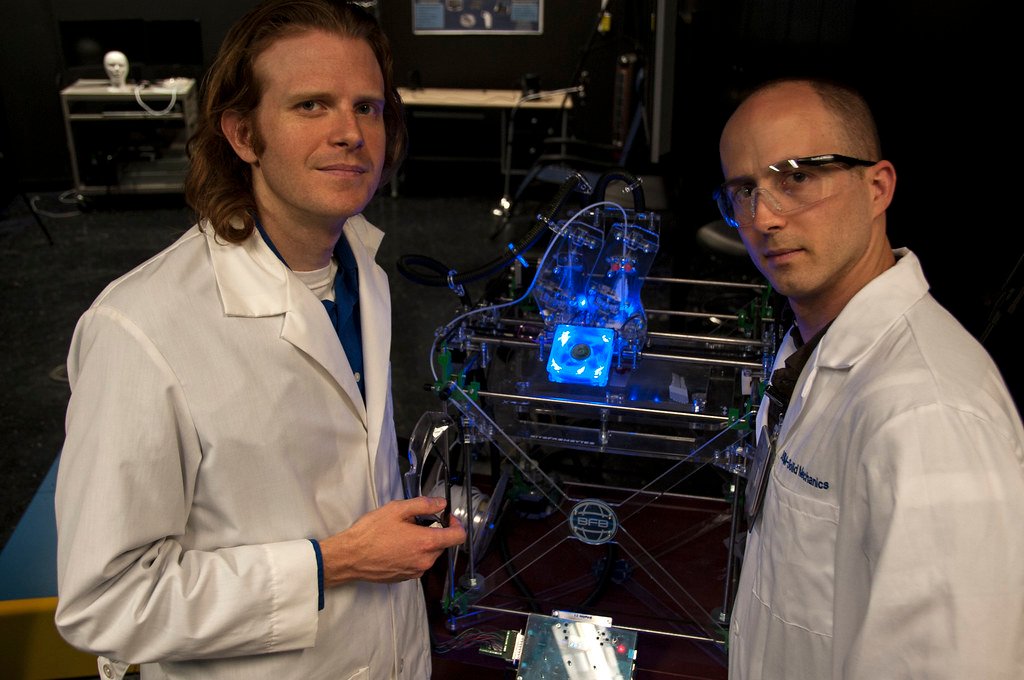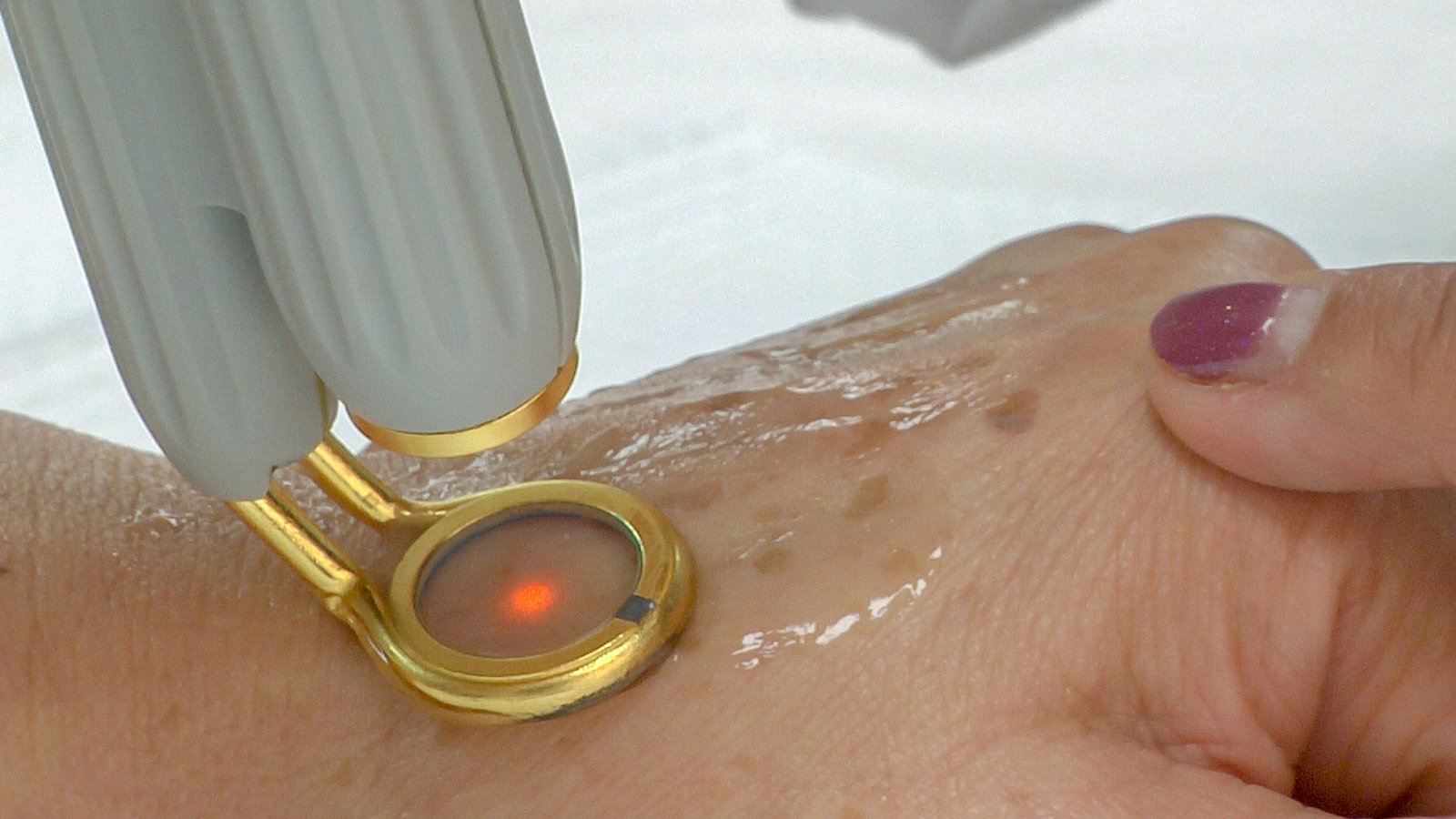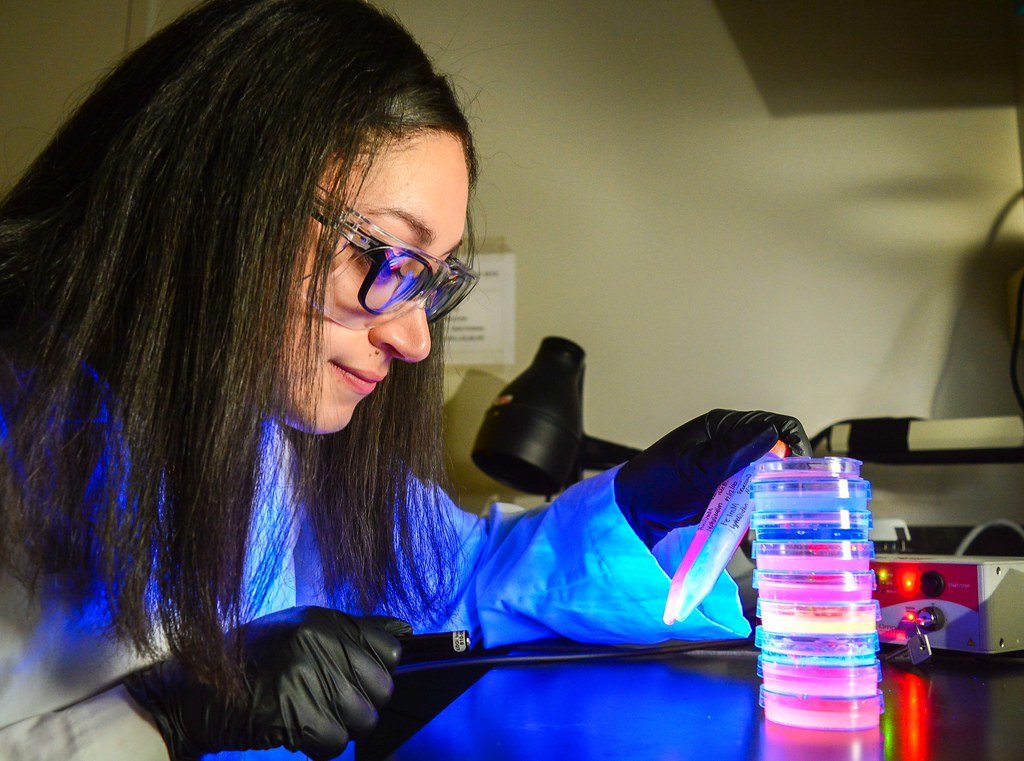When most people think of biotech innovation, their minds immediately drift to Silicon Valley or the Boston area. But there’s a quiet revolution happening in America’s heartland, where corn fields meet cutting-edge laboratories and traditional values blend with revolutionary science. The Midwest has become an unexpected powerhouse in biotechnology, fostering companies that are literally changing the world while flying under the radar of mainstream media attention.
These aren’t your typical garage startups with flashy marketing campaigns and celebrity endorsements. Instead, they’re grounded in solid science, backed by world-class research institutions, and driven by the Midwestern work ethic that values substance over style. From developing life-saving cancer treatments to creating sustainable food solutions, these seven biotech pioneers are proving that innovation doesn’t require a California zip code.
The Midwest’s Secret Weapon in Biotech Innovation

The region’s success in biotechnology isn’t accidental – it’s the result of a perfect storm of factors that many coastal entrepreneurs overlook. Top-tier research universities like the University of Wisconsin-Madison, Northwestern, and Washington University in St. Louis have been quietly churning out world-class scientists for decades. These institutions provide not just talent, but also access to cutting-edge research facilities and collaborative opportunities that rival anything found on the coasts.
Lower operational costs mean these startups can stretch their funding further, allowing them to focus on research and development rather than astronomical rent payments. The collaborative culture of the Midwest also fosters an environment where companies are more willing to share resources and expertise. This creates a rising tide that lifts all boats, rather than the cutthroat competition often seen in more traditional tech hubs.
Tempus: Revolutionizing Precision Medicine Through Data

Chicago-based Tempus has quietly become one of the most valuable biotech companies in the world, yet many people have never heard of it. Founded by Groupon co-founder Eric Lefkofsky, the company is using artificial intelligence and machine learning to transform cancer treatment through precision medicine. Their approach involves analyzing vast amounts of clinical and molecular data to help doctors make more informed treatment decisions for cancer patients.
What makes Tempus particularly groundbreaking is their ability to process real-world evidence from actual patient treatments, not just clinical trial data. They’ve built one of the world’s largest libraries of clinical and molecular data, with information from over 750,000 patients. This treasure trove of information helps oncologists identify which treatments are most likely to work for specific patients based on their unique genetic makeup and cancer characteristics.
The company’s impact goes beyond just individual patient care – they’re fundamentally changing how cancer research is conducted. By providing researchers with access to anonymized, real-world data, Tempus is accelerating the development of new cancer treatments and helping pharmaceutical companies design more effective clinical trials.
Breakthrough Innovations in Gene Editing Technology

While CRISPR technology gets most of the headlines, several Midwest startups are pushing the boundaries of gene editing in ways that could prove even more revolutionary. These companies are developing more precise tools that can edit genes with fewer off-target effects, potentially making gene therapy safer and more effective for treating genetic diseases.
The applications are staggering – from correcting genetic defects that cause blindness to developing new treatments for previously incurable diseases. What’s particularly exciting is how these Midwest companies are approaching gene editing with a focus on practical applications rather than just theoretical possibilities. They’re working closely with medical centers to ensure their technologies can actually be implemented in real-world clinical settings.
Zymergen: Transforming Manufacturing Through Synthetic Biology

Although Zymergen was later acquired by Ginkgo Bioworks, this Bay Area transplant with significant Midwest operations represents the kind of synthetic biology innovation that’s taking root in the region. The company used machine learning and robotics to engineer microorganisms that can produce everything from pharmaceuticals to specialty chemicals more efficiently than traditional manufacturing methods.
Their approach represents a fundamental shift in how we think about manufacturing. Instead of relying on petroleum-based processes or mining rare earth elements, these engineered organisms can produce complex molecules using simple inputs like sugar. This biological manufacturing approach is not only more sustainable but often more cost-effective than traditional methods.
The implications extend far beyond just making existing products more efficiently. Synthetic biology companies like Zymergen are creating entirely new materials and chemicals that would be impossible to produce through conventional means, opening up possibilities for innovations we haven’t even imagined yet.
Agricultural Biotechnology: Feeding the World Sustainably

The Midwest’s agricultural heritage makes it a natural hub for companies developing biotechnology solutions for food production. These startups are working on everything from developing drought-resistant crops to creating alternative proteins that could help feed a growing global population while reducing environmental impact.
One particularly promising area is the development of crops that can fix their own nitrogen, reducing the need for synthetic fertilizers that contribute to environmental pollution. These companies are also working on crops that can thrive in changing climate conditions, helping ensure food security as weather patterns become more unpredictable.
The work being done in agricultural biotechnology could prove crucial for addressing some of humanity’s biggest challenges. With the global population expected to reach nearly 10 billion by 2050, and climate change threatening traditional farming methods, these innovations could literally help save the world.
Revolutionary Approaches to Drug Discovery

Traditional drug discovery is notoriously slow and expensive, with most new medications taking over a decade and billions of dollars to develop. Several Midwest biotech companies are revolutionizing this process by using artificial intelligence and novel screening methods to identify promising drug candidates much faster and more efficiently.
These companies are developing platforms that can predict how different compounds will interact with human biology before they’re even synthesized. This approach allows researchers to focus their efforts on the most promising candidates, potentially cutting years off the development timeline. Some are even using machine learning to identify entirely new drug targets that human researchers might have missed.
The speed of innovation in this space is breathtaking. What used to take years of laboratory work can now be accomplished in weeks or months, dramatically accelerating the pace at which new treatments can reach patients who need them.
Personalized Medicine: Tailoring Treatments to Individual Patients

The concept of personalized medicine – treating patients based on their individual genetic makeup, lifestyle, and environmental factors – is becoming reality thanks to several innovative Midwest companies. These startups are developing diagnostic tools and treatment approaches that recognize that what works for one patient may not work for another, even if they have the same disease.
This shift from one-size-fits-all medicine to personalized treatment represents one of the most significant advances in healthcare in decades. By analyzing a patient’s genetic profile, doctors can now predict which medications are most likely to be effective and which might cause adverse reactions. This not only improves treatment outcomes but also reduces healthcare costs by avoiding ineffective treatments.
The technology behind personalized medicine is becoming more sophisticated and accessible every year. What once required expensive laboratory equipment and specialized expertise can now be done with portable devices and cloud-based analysis, making personalized medicine available to patients regardless of their location or economic status.
Immunotherapy Innovations: Harnessing the Body’s Own Defenses

The human immune system is incredibly sophisticated, capable of recognizing and destroying threats with remarkable precision. Several Midwest biotech companies are developing innovative ways to harness this natural defense system to fight cancer and other diseases more effectively than traditional treatments.
These companies are working on everything from cancer vaccines that train the immune system to recognize and attack specific tumor cells to cell therapies that involve removing immune cells from patients, modifying them in the laboratory, and then reinfusing them to fight disease. The results in clinical trials have been nothing short of remarkable, with some patients achieving complete remission from previously incurable cancers.
What makes these immunotherapy approaches particularly promising is that they often have fewer side effects than traditional treatments like chemotherapy. Instead of attacking all rapidly dividing cells, these therapies specifically target diseased cells while leaving healthy tissue largely unharmed.
Regenerative Medicine: Growing New Organs and Tissues

Perhaps no area of biotechnology captures the imagination quite like regenerative medicine – the ability to grow new organs and tissues to replace damaged ones. Several Midwest companies are at the forefront of this field, developing techniques to grow everything from heart valves to entire organs in the laboratory.
These companies are using stem cells and sophisticated biomaterials to create living tissues that can integrate with the patient’s body. Some are even working on 3D printing living tissues using the patient’s own cells, which could eliminate the risk of rejection that comes with traditional organ transplants. The potential applications are virtually limitless, from treating spinal cord injuries to reversing age-related organ damage.
The field is still in its early stages, but the progress being made is extraordinary. What seemed like science fiction just a few years ago is now entering clinical trials, bringing hope to millions of patients who previously had no treatment options.
Microbiome Research: The Hidden Ecosystem Within Us

The human microbiome – the trillions of bacteria, viruses, and other microorganisms that live in and on our bodies – is increasingly recognized as crucial to human health. Several Midwest companies are developing innovative approaches to modifying the microbiome to treat everything from digestive disorders to mental health conditions.
These companies are discovering that the microbiome influences far more than just digestion. Research suggests it plays a role in immune function, mood regulation, and even cancer development. By understanding and manipulating these microbial communities, researchers are developing entirely new approaches to treating disease.
The field is moving beyond simple probiotic supplements to sophisticated interventions that can precisely modify the microbiome. Some companies are developing “designer” bacterial strains that can produce therapeutic compounds directly in the gut, while others are working on fecal microbiota transplants that can restore healthy microbial communities in patients with certain conditions.
Biomarker Discovery: Finding Early Warning Signs

Early detection is often the key to successful treatment, but many diseases don’t show symptoms until they’re already advanced. Several Midwest biotech companies are developing sophisticated methods to identify biomarkers – biological indicators that can signal the presence of disease long before symptoms appear.
These companies are using advanced analytical techniques to identify patterns in blood, urine, breath, and other biological samples that can indicate the early stages of cancer, Alzheimer’s disease, and other conditions. The goal is to catch diseases when they’re most treatable, potentially saving millions of lives and reducing healthcare costs.
The technology behind biomarker discovery is becoming increasingly sophisticated, with some companies using artificial intelligence to identify subtle patterns that human researchers might miss. This approach is leading to the development of simple, inexpensive tests that could be used for routine screening in primary care settings.
Nanotechnology Applications in Medicine

Nanotechnology – the manipulation of materials at the molecular level – is opening up entirely new possibilities in medicine. Several Midwest companies are developing nanoscale devices and materials that can deliver drugs directly to diseased cells, repair damaged tissues, and even perform microscopic surgery.
These tiny devices can navigate through the bloodstream to reach specific targets in the body, potentially making treatments more effective while reducing side effects. Some are being designed to release drugs only when they encounter specific conditions, such as the acidic environment found in tumors. Others are being developed to repair damaged neurons or deliver gene therapy to previously inaccessible parts of the body.
The potential applications of medical nanotechnology are staggering. From smart drug delivery systems that can adjust their release based on the patient’s needs to nanoscale robots that can perform cellular repairs, these technologies could fundamentally change how we treat disease.
Sustainable Biotechnology: Green Solutions for a Changing World

Environmental sustainability is becoming increasingly important in all industries, and biotechnology is no exception. Several Midwest companies are developing biological solutions to environmental problems, from breaking down plastic waste to producing renewable fuels from agricultural waste.
These companies are using engineered microorganisms to solve problems that traditional approaches can’t address effectively. Some are developing bacteria that can consume plastic pollution and convert it into harmless byproducts, while others are working on organisms that can produce biofuels from crop residues that would otherwise be wasted.
The intersection of biotechnology and environmental sustainability represents one of the most promising areas for future innovation. As the world grapples with climate change and environmental degradation, these biological solutions could provide answers to some of our most pressing challenges.
The Future of Midwest Biotech

The success of these seven companies is just the beginning of what promises to be a biotechnology boom in the Midwest. The region’s combination of world-class research institutions, skilled workforce, and collaborative culture creates an ideal environment for biotech innovation. As more companies discover the advantages of locating in the heartland, we can expect to see even more breakthrough innovations emerging from this unlikely biotech hub.
The implications extend far beyond just regional economic development. These companies are working on solutions to some of humanity’s biggest challenges, from cancer and genetic diseases to food security and environmental sustainability. Their success could literally change the world, proving that innovation doesn’t require a prestigious zip code – just brilliant minds, hard work, and the courage to pursue revolutionary ideas.
The Midwest’s emergence as a biotech powerhouse also challenges our assumptions about where innovation happens. While coastal cities grab the headlines, the real work of changing the world is often happening in less glamorous locations, driven by scientists and entrepreneurs who are more interested in solving problems than generating publicity. These seven companies represent just the tip of the iceberg of what’s possible when brilliant minds meet Midwestern determination.
What other revolutionary breakthroughs might be quietly developing in laboratories across America’s heartland right now?



